
by Mark Smiley | Jun 26, 2022 | Editorials
by Mark Smiley

Air Force Memorial: Paul Smiley, who served in the Air Force from 1968-1972, enjoyed visiting the Air Force Memorial on the 101st Honor Flight Chicago on May 11, 2022. The Memorial is located in Arlington County, Virginia, on the former grounds of the Navy Annex near The Pentagon and Arlington National Cemetery.

Vietnam Veterans Memorial: One of the highlights of the trip was the visit to the Vietnam Veterans Memorial, the most visited memorial on the National Mall. Most of the veterans on Honor Flight Chicago 101 were Vietnam veterans so this stop was especially important to them.

F-100: The last stop on the tour was the Udvar-Hazy Center, the Smithsonian National Air and Space Museum’s annex at Washington Dulles International Airport. Paul Smiley poses in front of one of the planes he worked on while serving in the Air Force in Clovis, New Mexico. The F-100 Super Sabre was developed from the F-86 and was the world’s first fighter capable of supersonic speed in level flight.

Honor Guard: The U.S. Marine Corps Honor Guard performed for the veterans near the Lincoln Memorial Reflecting Pool.
This July, we celebrate Independence Day. I had the opportunity to celebrate a day of patriotism a little early as I accompanied my father to Washington, D.C., on the 101st Honor Flight Chicago. It was one of the most memorable and rewarding experiences of my life.
My dad, Paul Smiley, served in the Air Force from 1968-1972, during the peak of the Vietnam War. He was stationed in Clovis, New Mexico, and although he never went to Vietnam, he served our country honorably for four years. And for this, he was treated to a day of patriotism, appreciation, and honor on May 11, 2022.
Honor Flight Chicago’s mission is to honor, thank, and inspire by building awareness and appreciation of the debt of gratitude America owes its veterans for their service and sacrifice for our nation. “A lot of veterans come into the day thinking it is just a sightseeing trip but when they come back, they realize that was the sixth most important thing about the day,” said Doug Meffley, Co-Director, Honor Flight Chicago. “It’s really about our eternal gratitude from a grateful nation.”
The day starts early. Veterans and their guardians are asked to arrive at Chicago Midway by 4 a.m. the day of the flight. The entire morning is well organized and a team of volunteers are deployed in every corner to make check-in smooth. A special streamlined TSA line, Southwest Airline’s chartered flight, and other surprises along the way made the morning seem to fly by. All told, over 1,000 volunteers are in Honor Flight Chicago’s rolodex with 200-300 helping each flight.
The centerpiece of the programming is the day of honor in Washington, D.C., visiting the memorials built in tribute to the service of veterans from World War II, the Korean War, and the Vietnam War. This trip is provided at no cost to the veteran and is intended as a heartfelt thank you for their service and sacrifice from a grateful nation.
“All that we hear from our Vietnam veterans is thank you for this healing and closure, righting this wrong, when I was welcomed home with open animosity 50 years ago,” said Meffley. “That gratitude factor is the future of our movement.”
“Honor Flight Chicago brought many emotions to me as I shared the experience with my son [Chronicle Executive Editor Mark Smiley] who served as my guardian,” said Paul Smiley, Air Force Veteran, 1968-1972. “Visiting the memorials throughout Washington, D.C., paying homage to our fallen heroes, and to those traveling with us who served our country was awe inspiring and memorable.”
The emotions that filled me were profound and will last a lifetime. The chance to be able to spend the day with my dad and over 110 other heroes who served our country was one of the best experiences of my life. And that emotion is something Meffley experiences for a living. “I say thank you as a profession,” said Meffley. “It is the most rewarding and fulfilling work that I’ve ever had. For me, it feels like a stronger connection to my own family’s history in the military. I never served but this is my way of giving back to my family members who did serve.”
The typical waiting period after applying to go on the flight is two to three years for a Vietnam veteran. World War II and Korean War veterans go to the front of the line. Some veterans such as my dad who did not see conflict, initially felt they didn’t deserve this day of honor. “Our firm stance is that if you served during a period of war, you deserve our thanks,” said Meffley. “By and large, you did not choose where you were assigned. You went into the service during a time of war, you were just as eligible as the next person to end up as a grunt on the ground in Vietnam. Our view is that all of them deserve our thanks and honor. It does take some convincing. We are not always successful to get veterans to fly but we find once they come back, we often hear I never thought I was a hero or I never did anything worth thanking but my view has changed after this day.”
I can attest that each of the 111 veterans on our flight was treated the same and with the honor and respect they deserve. And when friends of mine learned of me coming to the city where I grew up to experience this with my dad, they wanted to send their own message to my dad who they have known for 35 years.
“Thank you for your service to our great country,” said Andrew McKenna, family friend of Paul Smiley. “It is the sacrifices and challenging work that patriots like you and your fellow servicemembers made and continue to make that allow us to have this precious freedom.”
“This is a special honor for you to not only reflect on your experiences,” but to also celebrate your accomplishments,” said Robert Paetsch, family friend of Paul Smiley. “Your dedication to our country, your community, the church, your students, and your family have lifted us all.”
A little-known fact is that every flight, they travel with a flag box full of photos of veterans who did not live to exper

WWII Memorial: Paul Smiley, left, and Mark Smiley at the World War II Memorial in Washington, D.C. The WWII Memorial opened in 2004 and honors the 16 million who served in the armed forces of the U.S., the more than 400,000 who died, and all who supported the war effort from home.
ience their own Day of Honor. Some of those veterans never came home from battle. As Honor Flight Chicago 100 alum Glenn Taras said, “This is for those who didn’t make it home … to keep their memories alive.”
With the welcomed support of generous donors and a caring public, Honor Flight Chicago intends to continue its mission to include veterans of wars — past, present, and future — as they recognize the bravery, determination, and patriotism of our veterans.
There are 130 HUBs around the country. Honor Flight Chicago will fly any veteran from the country so long as they can arrive at Chicago Midway Airport by 4 a.m. the day of the flight. For more information, visit www.honorflightchicago.org or to find an Honor Flight near you, visit www.honorflight.org.
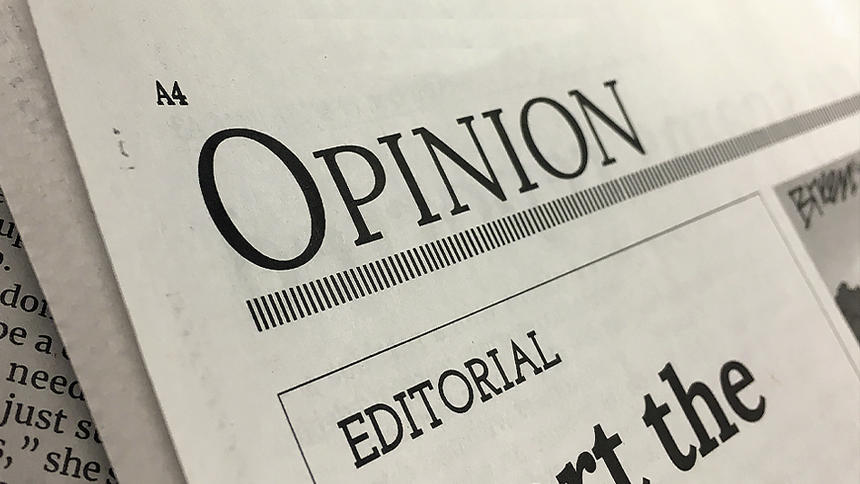
by Charles Bonniwell | May 20, 2022 | Editorials

June 28 is fast approaching which is primary day for both Democrats and Republicans. For Democrats it is no big deal. A few races with more progressives versus less progressives’ candidates, but very little controversy or heartburn. For the Republican Party it is the seismic clash between two wings of the party that has been going on for decades, and may spell the end of the Republican Party as a viable political force in the state, assuming it still is one.
Across the country, the establishment of the Republican Party personified by Senate Minority Leader Mitch McConnell and former President George W. Bush, are battling in primaries with former President Donald Trump advocates who believe the 2020 election was stolen. While today’s battle in Republican circles in Colorado has some of the same battle lines, the war is far deeper. The Colorado Republican Party has been controlled for over 50 years, if not longer, behind the scenes by businessmen like billionaire Phil Anschutz. They have always looked down their noses at the grassroots of the party who do almost all of the volunteer hard work for the party but have little money. They view them as crude and unsophisticated but then need them to till the fields like serfs in imperial Russia. To keep them in line, the Colorado Republican establishment uses a small army of consultants to whom no amount of viciousness and corruption is too much. They are always the overseers of the Colorado Republican plantation with bull whips in hand.
Pursuant to the Republican Bylaws, as re-written by the establishment, the party chair is almost all powerful over the state party organization and thus the establishment feels it must control that position. The grassroots have successfully elected the party chair in 2015 with Steve House and 2021 with Kristi Burton Brown over establishment candidates only to find the establishment was able to turn their candidates against them. In 2017 the grassroots appeared to be on the cusp of electing State Representative Susan Beckman as chair so the establishment, in a panic, went to Washington and rushed in Republican Congressman Ken Buck to be party chair. The fight for party chair was a truly dirty one by the establishment in which the grassroots believed the overseers consultants corrupted the proxy voting process and then destroyed dirty work evidence right after the election.
The Republican Party has a hybrid nomination process. You can get on the ballot if 30% or more of the delegates to the applicable assembly vote for you. Alternatively, you can pay a signature gatherer firm to get enough Republican signatures vis a vis a petition to get on the nomination ballot. It’s costly but establishment candidates far prefer it rather than having to talk and convince lowly delegates for their votes. In their view it is so much more civilized.
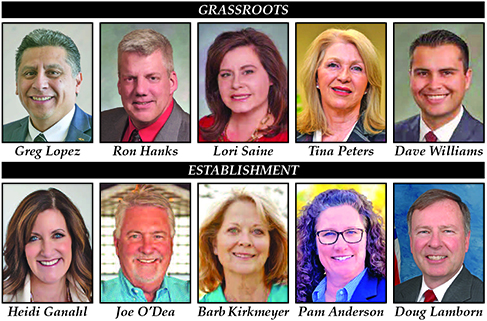 In this primary season, grassroots candidates won overwhelmingly in the respective congressional and state assemblies, with establishment candidates by and large gaining access to the ballot by petition. Because of a statewide referendum supported by establishment Republicans, unaffiliated voters get both a Republican and a Democrat ballot and can vote either one but not both, and the unaffiliated voters by numbers dwarf the number of Republican voters. Establishment candidates who have all the money hope by a dent of advertising dollars to overwhelm the grassroots with non-Republican voters to win the Republican nominations. If they don’t win a contest, they will refuse to contribute to any grassroots candidates in the general election and when they lose claim they were unelectable anyway in a general election.
In this primary season, grassroots candidates won overwhelmingly in the respective congressional and state assemblies, with establishment candidates by and large gaining access to the ballot by petition. Because of a statewide referendum supported by establishment Republicans, unaffiliated voters get both a Republican and a Democrat ballot and can vote either one but not both, and the unaffiliated voters by numbers dwarf the number of Republican voters. Establishment candidates who have all the money hope by a dent of advertising dollars to overwhelm the grassroots with non-Republican voters to win the Republican nominations. If they don’t win a contest, they will refuse to contribute to any grassroots candidates in the general election and when they lose claim they were unelectable anyway in a general election.
The grassroots have indicated they have had enough and if establishment candidates win the positions, they will not do any of the grunt work to get them elected, thereby also dooming their chances in a general election. Phil Anschutz and the establishment are willing to call what they see as a bluff by the grassroots. Thus, even though with President Joe Biden having an approval rating in the 30s in Colorado, and the Republicans having their best chance in a long time, it may not make a difference. Set forth below are the key races in the Republican primary on June 28 with the leading grassroots candidates listed first in italics and the leading establishment ones in regular font so you can see on election night who prevails if you so desire.
Governor: Greg Lopez – Heidi Ganahl
U.S. Senator: Ron Hanks – Joe O’Dae
Secretary of State: Tina Peters – Pam Anderson
U.S. Rep (C.D. 3): Lauren Boebert – Don Coram
U.S. Rep (C.D. 5): Dave Williams – Doug Lamborn
U.S. Rep (C.D. 7): Laurel Imer – Erik Aadland
U.S. Rep (C.D. 8): Lori Saine – Barb Kirkmeyer
U.S. Rep (C.D. 5): Bob Lewis – Ken Buck
— Editorial Board
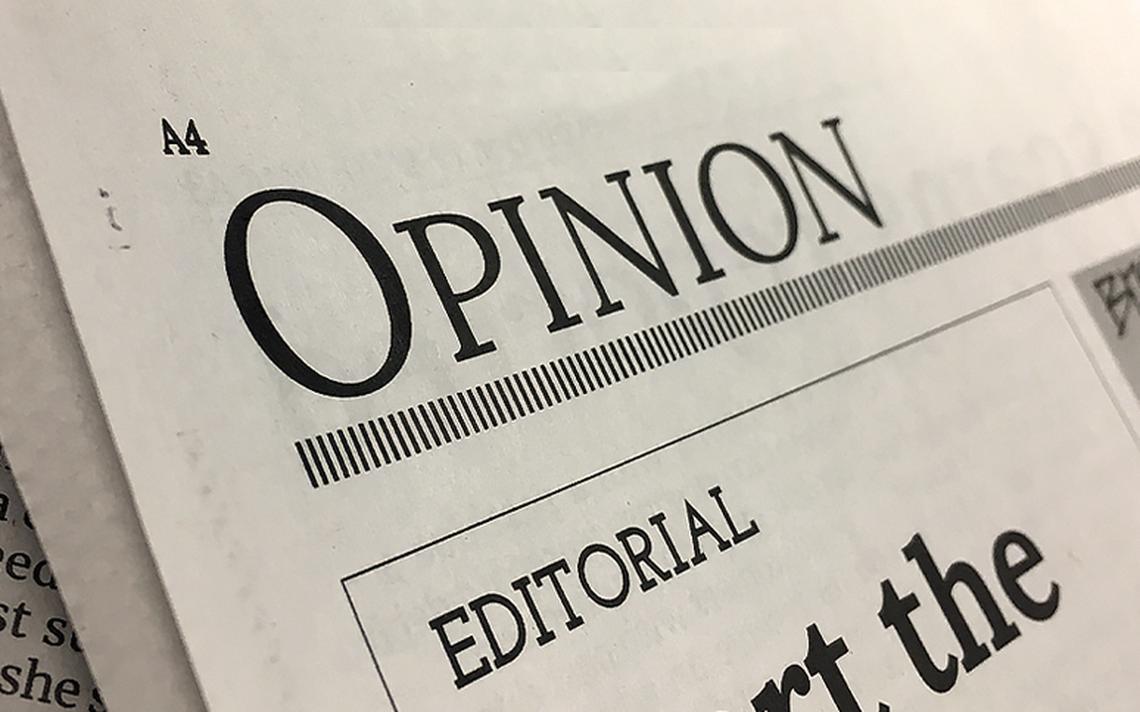
by Charles Bonniwell | Apr 21, 2022 | Editorials
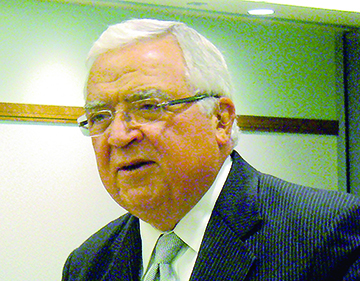
Citizen Kane
When John L. Kane first donned the black robes of a federal court district court judge and climbed the steps of the judicial pulpit in 1977, most Colorado residents had not even been born. He was appointed by President Jimmy Carter who became known for idiosyncratic judicial picks. Eight years ago, this Editorial Board praised Judge Kane over him taking to task the Denver City Attorney’s Office over the torture case of Jamal Hunter in the city jail. He had been compared to film hero Sheriff Will Kane in the western High Noon. While Will Kane knew when to retire, apparently Judge John Kane does not. The octogenarian jurist is being compared more these days with another film protagonist, the megalomanic John Foster Kane in the film Citizen Kane.
Federal judges have, according to the U.S. Constitution, a lifetime tenure which some judges such as Ruth Bader Ginsburg took literally. It appears octogenarian Judge Kane appears to take a similar view to Justice Ginsburg for his position as a District of Colorado federal judge much to the detriment of the people Colorado. His judgement and acuity appear substantially diminished over the years and it’s getting worse. In the fall of last year, he issued an injunction stopping parents in Douglas County from exempting their children from wearing masks in public schools. The public officials and people of Douglas County had spent months fighting to free themselves from the dictatorial mandates of Tri-County Health and its somewhat crazed executive director Dr. John Douglas who singlehandedly destroyed the oldest and largest health department in the state with his mask mandates.
In September of last year, the duly elected Douglas County commissioners voted to finally be freed of Tri-County and set up its own Douglas County Health Department. The new health department issued a ruling allowing a parent or guardian to sign a written declaration exempting their children from school mask mandates.
Free at last, free at last! The children who have the least risk from COVID-19 were liberated from mask oppression at least with the consent of their parents. But while Douglas County was liberated from the malicious hands of Dr. Douglas they were unfortunately delivered into the hands of germaphobe Judge Kane. The School District with teacher union board members and nine students claimed the health department could not make health decisions for the county; that was up to an 84-year-old federal judge. He issued a highly quixotic ruling claiming under the Americans with Disabilities Act children must be masked. Once the governor declared the COVID-19 pandemic to be over it mooted the bizarre ruling but in theory Judge Kane could become his own health department.
What was pathetic about the ruling was Judge Kane’s apparent inability to even understand the federal courts’ own declarations about mask requirements. A statewide declaration had been issued saying those entering federal courtrooms in Colorado could, but were not required to wear masks, except in high COVID areas of the state. While Grand Junction was considered a high-risk, Denver was not. Directives posted on the courtroom doors of federal judges in Denver, other than Kane, correctly indicated that masks could be worn but were not required. On Kane’s courtroom door, it announced masks must be worn. A judge who cannot read and understand orders on masks probably should not be issuing mask mandates.
Kane’s most recent outrage, and there are many others, was his ruling on the effort of five Republican plaintiffs not to have their nominating process overwhelmed by unaffiliated voters who do not share their political beliefs. Kathryn Murdoch and various other Democrats has been pouring money into Colorado Republican primaries to elect ever more left leading Republicans.

“Rosebud”
In theory, in federal court the judge assigned to your case is random so that plaintiffs cannot forum shop. Whether federal judges can try to get certain cases assigned to them is less clear. The plaintiffs in the open primary challenge case were assigned to President George W. Bush appointee Chief Judge Philip A. Brimmer, considered a favorable draw. But then all of a sudden, Brimmer had a conflicting criminal trial and “abracadabra,” up pops Carter appointee Judge Kane who was generally considered the worst pick the plaintiffs could have gotten.
The Colorado Secretary of State Jena Griswold through the attorney general’s office filed a motion to dismiss for “lack of standing” of the plaintiffs because the Republican Party itself was not a party.
Normally a motion to dismiss for lack of standing is considered first as if granted everything else is moot. The plaintiffs had to know that Kane was itching to get them when he combined the motion to dismiss with the request for a temporary preliminary injunction on what appeared to be specious grounds. It was obvious that Judge Kane wanted to get his pound of flesh from plaintiffs’ attorney Dr. John Eastman, a bete noire to Democrats like Kane for advising Trump and speaking on January 6th at the Capitol.
Kane’s 32-page Memorandum and Order was every bit as biased as expected. On the dozens of issues, law, and fact, Kane found every one in favor of Jena Griswold and then some. It was so one-sided that a 710 KNUS radio personality leeringly read out parts of the opinion on his morning radio show (replacing Peter Boyles) various parts of opinions calling it a “b**** slap” to the plaintiffs and their counsel.
When a radio jock finds your legal opinion so biased as to be entertaining, it’s probably time to retire as a judge. Unfortunately, Judge John Kane appears to enjoy pushing Coloradans around so much they will get to carry him off the bench only after expiring and whispering “Rosebud.”
— Editorial Board

by Charles Bonniwell | Mar 18, 2022 | Editorials

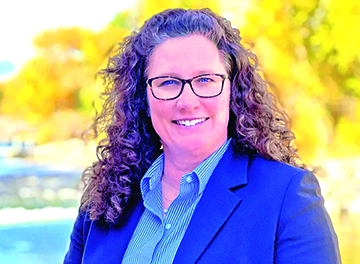 The Harlem Globetrotters were just in town for a game against the Washington Generals entertaining and delighting thousands of men, women, and children. The Globetrotters won the game, something which they have been doing for 60 years. In fact, they have played the Generals close to 20,000 times and have lost on only three occasions with the last Generals victory coming in 1971. That fact has not impinged on the fun everyone has.
The Harlem Globetrotters were just in town for a game against the Washington Generals entertaining and delighting thousands of men, women, and children. The Globetrotters won the game, something which they have been doing for 60 years. In fact, they have played the Generals close to 20,000 times and have lost on only three occasions with the last Generals victory coming in 1971. That fact has not impinged on the fun everyone has.
Why not implement a Harlem Globetrotter system for election contests in Colorado? Ever since the Democrats implemented the “Blueprint Colorado” program 20 years ago, they have through legislation or ballot initiatives manipulated the Colorado electoral process so they almost can’t lose on a statewide level. It appears (absent WWIII with Russia) a Republican red wave will be sweeping the country in 2022, at a scale not matched since the mid-terms of 1866.
If the Colorado Republicans cannot take back a single statewide office or the State Senate or House in the upcoming 2022 elections, it will prove that the Dems have controlled the system so they will never lose. So why not adopt the old Soviet system where there is only one candidate to vote for on Election Day? It could be followed by a big celebration with music, dancing, and increased rations for all. The Republicans in Colorado won’t mind, as they have let the Democrats turn the state blue without a pip of protest.
Take for example the statewide race this year for secretary of state. The present Secretary of State, Democrat Jena Griswold, is acknowledged by all as an autocratic, partisan hack who must check in with Planned Parenthood for responses to inquiries from the press. When Republican Mesa County Clerk Tina Peters took images of the Dominion voting machine for an audit of the 2020 election before it was to be wiped clean for an “update” by Dominion, Griswold had her indicted with the help of the FBI, Democrat Attorney General Phil Weiser, and Republican Mesa County District Attorney Daniel Rubinstein. Griswold then had her replaced by the former Secretary of State Wayne Willi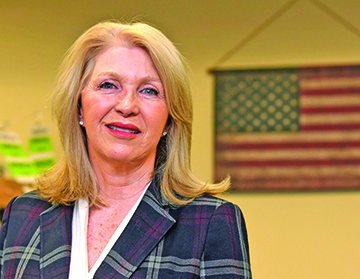 ams who is a Republican establishment hack.
ams who is a Republican establishment hack.
Of course, taking images of the voting machine is not a crime so they had to come up with a bizarre 10 count indictment which apparently claims it is illegal to call the Secretary of State’s office to ask for help on election matters. Luckily, such legal jujitsu will not be needed next time a county clerk has the temerity to challenge the Secretary of State. Griswold had State Senate President Steve Fenberg introduce Senate Bill 22-153 which is rushing through the state legislature at a breakneck speed.
The bill will, inter alia, make it illegal to make images of voting machines, stop lots of classes of people running for election positions, and make it a crime for a local election official to make “knowingly false” statements about election matters. Who gets to decide in the first place if it is knowingly false? That, of course, will be your lovely government. That particularly hideous violation of the First Amendment does not apply, of course, to the Secretary of State herself.
Your remedy is at the ballot box, right? While the State Republican Party, the Denver County Republicans, and Tina Peters howled about these unconstitutional provisions, the one Republican who did not was the leading Republican candidate for the Secretary of State position Pam Anderson, who declared: “I don’t have a problem with the bill as a whole ….”
What kind of Republican is Pam Anderson? Well, the right kind, that is a Republican working to get Democrats elected. Until she took a “leave of absence” she was a Director for the Center for Technology and Civic Life. That is the Zuckerberg funded ($350 Million) organization which has been accused of bribing officials in various states including Wisconsin, Georgia, and Arizona to get Democrat Joe Biden elected President.
The only other person in the race who could possibly win, Tina Peters, was stabbed in the back by the Chairwoman of the Republican Party Kristi Burton Brown. After the partisan indictment of Peters, she sent a press release demanding that Peters withdraw from the race. The Bylaws of the Republican Party require strict neutrality by the Chair in any Republican Party primary but apparently that does apply to this Secretary of State race.
Your likely candidates for the Secretary of State race will be Jena Griswold, a Democrat, and Pam Anderson, a Republican who cheats to get Democrats elected. Why bother with an election at all? Just flip a coin and have only one candidate run. Better yet, revise SB 22-153 so that the Democrat Governor, in consultation with the Democrat Attorney General and Democrat Secretary of State, picks the one and only candidate for all elected positions in the state. Then change “Election Day” to “Soviet Celebration Day” and take the tens of millions of dollars that would have otherwise been spent on rigged elections for the greatest statewide party ever. Yes, go Globetrotters!
— Editorial Board

by Charles Bonniwell | Mar 4, 2022 | Editorials
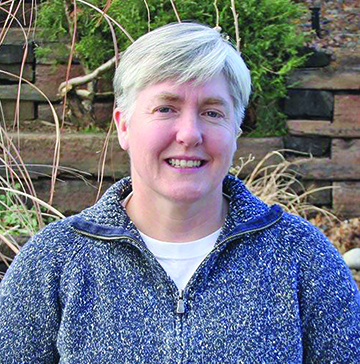
Dr. Dawn Comstock, Former Executive Director, Jefferson County Public Health
Colorado’s politically savvy Governor Jared Polis was the first Democrat governor to declare the COVID-19 pandemic to be over and ended all state mandates. Of course, 75% of Coloradans remained under mask and other mandates imposed by local health authorities, so nothing really changed other than Polis being hailed by the left wing and right wing as a man of the people.
Our progressive City and County of Denver loved its mask mandates, social distancing, and lockdowns. Denver’s problem was if all the surrounding counties of Jefferson, Arapahoe, Adams, and Douglas did not follow suit the slow ruination of downtown and the city would be accelerated with businesses and residents deserting it for the suburbs.
That was why the rise of the Colorado health officials was so important. Dr. John Douglas of Tri-County Health (Arapahoe, Adams, and Douglas) and Dr. Dawn Comstock of Jefferson County Health, along with their respective boards, could lockdown and mask up those counties without any say of the citizens and their elected officials and they did so with relish.
No amount of public protestation mattered. Schools went to “virtual learning” (meaning no learning at all) to the delight of schoolteachers’ unions who demonstrated that their highest goal is to be able to get full pay with little or no work. Parents did notice that Catholic and other private schools stayed open without any increase in COVID-19, but their teachers were not unionized.
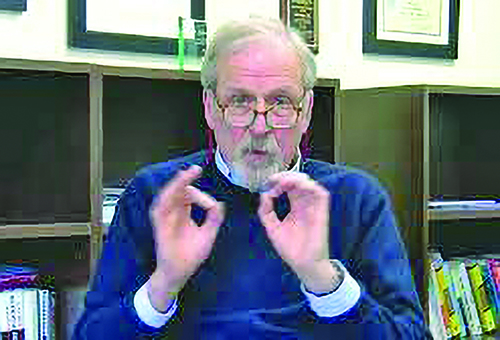
Dr. John Douglas, Executive Director, Tri-County Public Health
It did not seem to matter to Dr. Douglas that he was slowly destroying the state’s largest and best-known health department. First Douglas County, then Adams County, and finally even Arapahoe County withdrew from Tri-State Health destroying the jobs of over 600 health professionals and staff. The most employable of that health department have exited to new jobs while the people filling those vacancies were so substandard that having Tri-County on your resume is now considered a black mark.
Dr. Douglas did not seem to care as mandates and lockdowns were more important to him than anything else. It did not seem to matter to him that masks and lockdowns appear not to slow the spread of the virus or its severity, and may have caused more deaths from suicide and other causes than it saved. Being 68-years-old Dr. Douglas did not have to worry about getting a new job as he can retire on a highly generous public pension and his co-workers be damned.
His counterpart in Jefferson County, Dr. Comstock is not quite as fortunate. She was hired in February of last year replacing Dr. Mark Johnson who retired as the head of Jefferson County Health after over 30 years to become the president of the Colorado Medical Society. He went out with unanimous praise and honors.
Dr. Comstock got her board to reinstate the all-important mask mandate in the fall of 2021 along with other anti-COVID measures. She didn’t seem to notice that the public had turned against her. She even went to court to try to force three private Christian schools to bow down to her mask mandate. She was the only witness in a daylong hearing with the court packed with parents who did not want their kids masked all day long, especially since the cloth masks were deemed ineffective in stopping the spread of the virus. She won the court battle but lost the war.
She was hauled before the Jefferson County Board of Health on February 7 for a two-hour executive session where she apparently refused to back down on the mask mandates and was required to resign. The Board then quickly lifted the mandates.
Because of health official tyrants like Drs. Douglas and Comstock many people in Colorado have learned not to entrust their lives to unelected bureaucrats even if they have the appellation “Dr.” before their names.
Lord Acton’s admonition that “power tends to corrupt and absolute power corrupts absolutely” applies to all manner of men and women no matter what their profession.

by Regan Bervar | Jan 21, 2022 | Editorials
“When we clutter our lives with imagined obligations, unnecessary activities, and distractions that only kill time, we dilute the power of our lives.” — Anne Katherine
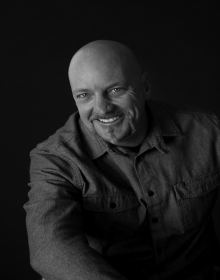 by Luke Schmaltz
by Luke Schmaltz
For the last 200,000 years, the human psyche has been overarchingly concerned with the physical world — aka the Outernet.
Even after the invention of the printing press in 1440, the focus of most humans was on food, water, shelter, weather, the changing seasons, the nighttime sky, flora, fauna, and other groups of nearby people.
The fascination with inward worlds, other than stories passed on through hieroglyphs and the oral tradition, most certainly began with the written word. Yet, it did not explode across the mindscape of civilization until complex ideas could be produced en masse. While the printing press has most certainly been an inimitable tool in the furthering of civilization through the sharing of information, it also gave rise to the desire for an ever more efficient way of exchanging ideas.
Progress In Overdrive

The printing press, while part of the Outernet, could be considered the proto-Internet.
Then, in the 1990s, the rising popularity of a global computer network — aka the Internet — began to deliberately eclipse the Outernet. In a span of less than 30 years, this phenomenon has completely changed how most Americans interact — not only with each other — but with the world around them. For some, the importance of the Outernet is becoming increasingly dismissed, as folks who are immersed in the digital world delve deeper into a set of stimuli which the human brain and nervous system are not equipped to handle on a full-time basis.
In scenarios of extreme overuse — such as video game addiction — too much screen time can ruin your life, and at the very least, can waste large portions of it while infecting you with twin cases of depression and social ineptitude. Yet, just as the bastard children of the printing press are tabloid newspapers, social media platforms are the unholy spawn of the Internet.
According to a June 2021 report on a study performed by the Reboot Foundation, “There is a disconnect between how people see the impact of social media on society and how they view it on an individual level. Despite their concern about social media’s impact on public mental health, most individuals seem ambivalent about the role of social media in their own lives. To put it bluntly, everyone seems to think their own relationship to social media is healthier than the average. This was clear in the survey. Over 70 percent of users said they would not give up their social media accounts for less than $10,000. Even more surprising, more than 40 percent said they would give up their TV, car, or pet before they disabled their social media pages.

Instead of gaming, thumb-typing, and scrolling all day — you can learn music or do something otherwise productive.
But despite being open to giving up Fido for Facebook, only about a third of respondents reported taking steps to limit their social media use, like turning off phones periodically or limiting content on their feeds.”
A Host Of Hindrances
While social media and gaming are among the most popular Internet/screen time fixations, these activities are rivaled (and accompanied) by instant messaging, email, gambling, watching videos, shopping, banking, streaming music, swiping through dating apps, and the list goes on and on. Plainly put, many people are spending too much time online and in front of LED screens. In doing so, they are becoming increasingly depressed and unable to effectively interact with the Outernet. Thankfully, there are a few strategies which, if applied deliberately, can help you extract yourself from the digital world and rediscover the other world that has been waiting just outside your field of vision.

Using the alarm clock app on your cell phone can seriously diminish the quality of your sleep.
Wake Up With Analog
Before you go to bed, consider turning your phone off for the night and using the antiquated yet time-tested method of awakening to an alarm clock. This way, you can remove the temptation of scrolling through your Instagram feed as you lay in bed at night and waking up to a bunch of notifications of things that happened while you were asleep.
Turn Them Off
Speaking of annoyances, if you disable your visual and audible notifications permanently, you can minimize how often you are distracted by an incoming email, a social media like, or an instant message. By doing so, you can take back autonomy over your time and your ability to focus on the task at hand rather than constantly being pulled away from what you are doing by tiny digital signals.
Put It Down
Whether your smartphone is glued to your hand 24/7, or if you are a semi-casual user, it is important to look forward while crossing the street, to drive undistracted, and to take in a sunset without checking your email. Plus, if you go for a walk without your phone, you might end up having a conversation with a neighbor, watching the fall leaves flutter down from the tree branches, or avoid walking into one of these trees because you’re staring down at your phone.
Replace The Habit

Too much screen time, gaming, and social media can be bad for one’s health.
If gaming is becoming a full-time fascination and you haven’t showered for a week or seen the sun for as long, perhaps it’s time for a new hobby. Since you love the competitive, exciting nature of video games, consider hiking, martial arts, team sports, or regular trips to local amusement parks. If you’re a computer nerd at heart, perhaps applying your aptitude by learning to write code is a viable pursuit. If your imagination craves stimulation, you can forgo your Instagram feed for a dip into a thick, handheld piece of fantasy fiction — aka a good book.
Use Your Hands
Incessant scrolling, texting, and game console handling are all manual skills which take repetition and coordination to develop. What they do not develop, however, is an auditory talent which can help you connect with others. Rather than twiddling with your phone and fidgeting with your keyboard all day, consider learning to play the guitar, the piano, the harmonica, or some other musical instrument. These highly cerebral endeavors have much of the same effort/reward effect as gaming without the negative, addictive elements. Plus, playing music carries a far more long-term sense of accomplishment and fulfillment than just about any online activity.
It is a fact that the Internet is here to stay and is essential to the functions of modern life. But the Internet is predated by the Outernet, which the human psyche is far more attuned to for achieving genuine happiness and personal fulfillment. By all means keep your phone, just turn it off every once in a while, gaze out the window, and see what happens.






















